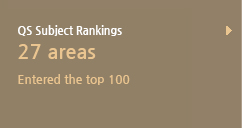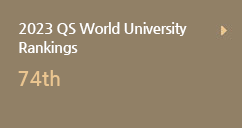Five KU professors selected to the world's most influential researchers of 2021 list

Five professors from Korea University were listed as some of the world's most influential researchers (Highly Cited Researchers (HCR)) in 2021 by the global company Clarivate Analytics (formerly Thomson Reuters Intellectual Property and Science Business, hereinafter called Clarivate).
The HCR list refers to researchers with a high number of paper citations, selected by Clarivate annually from its Web of Science global citation database based on the top 1% most cited papers. Researchers on the HCR list, now in its eighth year, have been consistently recognized by fellow researchers around the world based on the number of citations.
Clarivate announced that a total of 6,602 researchers from 70 countries around the world had been selected as global HCRs this year; 47 were selected in Korea.
The five professors at Korea University selected as HCRs this year are Jong-seung Kim (Department of Chemistry), Jun-hong Noh (Department of Civil, Environmental and Architectural Engineering), Choon-ki Ahn (School of Electrical Engineering), Yong-sik Ok (Division of Environmental Science and Ecological Engineering) and Klaus-Robert Muller (Department of Artificial Intelligence), whose second affiliated institution is Korea University. All five have maintained their HCR positions for at least three years. Notably, Professor Jong-seung Kim has been honored in the field of chemistry for eight consecutive years beginning in 2014. Professor Noh was selected for the fourth consecutive year in Cross-Field, and Professor Ahn was selected for the third consecutive year in the engineering field. Professor Ok was selected as an HCR in Cross-Field in 2018 and became the first Korean to be selected as an HCR in the fields of environment and ecology in 2019. This year he became the first Korean HCR in two fields: environment and ecology, and engineering.
Jong-seung Kim, a professor of chemistry at the College of Science, has been developing next-generation target-oriented anticancer drugs using small molecules. He has published more than 530 papers, recording a high H-index (based on Google Scholar) of 104 with more than 40,000 citations and registering more than 80 domestic and foreign patents. He is a scholar who plays a leading role in his field. For over twenty years, Professor Kim has dedicated his research to developing a drug delivery system that effectively acts only on cancer cells without any side effects. The targeted anticancer therapeutic substance for inducing apoptosis in cancer cells developed by Professor Kim is a low molecular weight compound that induces attacks only on cancer cells. It has presented a new paradigm for overcoming drug resistance by significantly reducing the side effects of cancer treatments. Professor Kim is currently a full-time member of the Korean Academy of Science and Technology, won the Inchon Award in 2017, and serves as an editor-in-chief for several international academic journals, including the Chemical Society Reviews Journal (IF:54).
Jun-hong Noh, a professor at the College of Engineering’s School of Civil, Environmental and Architectural Engineering, has been studying the next generation of solar cells related to renewable energy. Professor Noh's major research field, halide perovskite solar cell technology, is drawing keen attention as a future solar cell technology for energy conversion to renewable electricity that does not involve carbon. He is attracting attention as an expert in the field of next-generation solar cell research, winning the 2019 Young Scientist Award (Presidential Award) from the Korean Academy of Science and Technology. Professor Noh has contributed greatly to achieving high efficiency in perovskite solar cells and the development of source technology and has produced excellent research results by publishing more than 100 SCI papers and receiving 30,000 citations. In addition, he is actively engaged in research and development activities, such as applying for and/or registering more than 70 domestic and foreign patents.
Professional Choon-ki Ahn of the College of Engineering's School of Electrical Engineering has taken on a worldwide leadership role in the research on intelligent control and automatic systems, publishing more than 220 important works in the field's top journals to pioneer new convergence research. He was selected as the top researcher in the field of electrical/electronic engineering in the Qualitative Evaluation of Young Professors' Research by the JoongAng Ilbo University Evaluation in 2016 and 2017, and he won the government’s Young Scientist Award for pioneering multidimensional/intelligence control. Recently, he was selected as the researcher with the best IEEE academic achievement in the field of control systems in Korea. Professor Ahn is a deputy editor of IEEE TNNLS, IEEE TFS, IEEE TSMCS, IEEE TASE, IEEE TITS, IEEE TCASI and IEEE SMCM, the world's top journals in the field of intelligent control and autonomous systems and has recently been selected as the best associate editor of IEEE TSMCS and IEEE TNNLS.
Yong-sik Ok, a professor at the College of Life Sciences & Biotechnology’s Division of Environmental Science and Ecological Engineering is the Chair and Program Director for the Association of Pacific Rim Universities (APRU)’s newly established Sustainable Waste Management Program and has been conducting research on climate and environmental energy convergence technology to achieve UN Sustainable Development Goal(SDG)s. He has a total of 86 Highly Cited Paper(HCP)s and has been selected as an HCR in the field of environmental ecology as well as engineering this year in recognition of his research achievements and influence on solving environmental challenges such as plastic pollution. He became the first Asian to be elected Co-Editor-in-Chief of the prestigious academic journal Critical Reviews in Environmental Science and Technology (CREST, 5 Years IF 13), published by Taylor & Francis and has played a leading role in the study of environmental social governance (ESG) environmental pillars. Professor Ok's research is based on international cooperation, and 87.0% of the more than 700 research papers he has published over the past decade have been published in top 10% journals in academic fields, achieving both quantitative and qualitative excellence.
Professor Klaus-Robert Müller of the Department of Artificial Intelligence is an invited overseas scholar at Korea University and is famous in the field of machine learning. Following his selections in 2019 and 2020, this year is his third selection in Cross-Field. He has contributed extensively to several key issues in support vector machines and kernel methods in machine learning, including neural networks. Currently, his field of interest is in applying time-series analysis and machine learning methods to areas such as brain computer interfaces (genomic data analysis, computational chemistry and atomic simulations).
The biggest driving force behind Korea University's steady HCR listing of multiple professors is the university's excellent research environment and support system, which recognizes and actively supports outstanding researchers. Through various research support programs such as the Suk Tap Research Award, the Suk Tap Technology Award, the Insung Research Award, and the Insung Star Research Fund, Korea University has been striving to create a healthy research ecosystem where creativity and innovation can take root in a stable research environment. With multiple professors selected to the HCR list, Korea University has once again proved its status as an unrivaled research-oriented university.



